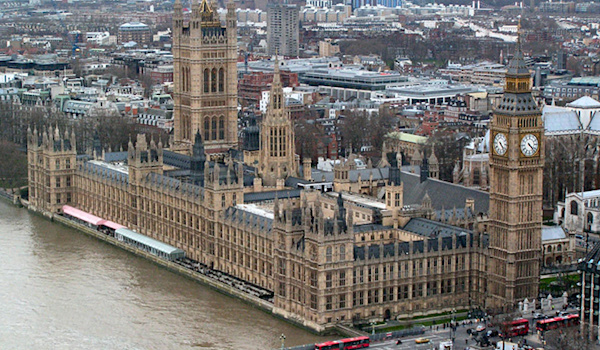Expert commentary and legal updates covering housing, homelessness, debt, and benefits.
News and updates
Recent articles

March 2024 round up

Landlord troubles, tenant woes

Liability orders

Housing law by numbers

Rough sleepers in cold weather

Agricultural workers rights

Pensions and debt enforcement

Homeless application delays
Articles by topic
Housing, debt, and related articles by practitioners, for practitioners.
Homelessness and allocations
January 2024
Jodie Adams, a new Shelter adviser, shares her guide to the key legal jargon used in homelessness advice, from section 184 to section 202.
October 2023
Delays in homeless applications
How advisers can challenge local authority delays in homelessness applications, including case studies of Ombudsman decisions which consider delays.
September 2023
How to check an allocations policy
How to check whether someone is eligible to join the housing register and what priority they might receive.
June 2023
How to help rough sleepers in hot weather
Charlie Howard sets out how professionals can support rough sleepers in hot weather, including new heat-health alerts.
May 2023
The armed forces covenant: impact on housing
Madeleine Hunter explains what the armed forces covenant is and how it affects the housing rights of veterans.
February 2023
Intentionally homeless after eviction for rent arrears
Recent judgments about a local authority assessment of a homeless applicant's ability to pay rent on their former home.
January 2023
How to make a homeless referral
How and when to make a referral to a local authority or to help someone make a homeless application.
When a tenant is legally homeless after a section 21 notice
How local authorities should assess if someone is legally homeless after they receive a section 21 notice from their landlord.
December 2022
Emergency accommodation for rough sleepers in winter
Emergency accommodation options available to rough sleepers, who are at a significantly higher risk of harm and death when the temperature drops.
October 2022
Local authority duties to prevent and relieve homelessness
Local authorities have duties to prevent and relieve homelessness for all homeless applicants who are eligible based on their immigration status.
July 2022
Preventing homelessness in a cost of living crisis
Charlie Berry sets out how local authorities can use financial assistance to prevent households reaching crisis point.
January 2022
What a local authority must do when a person reapplies as homeless following a previous decision.
July 2021
Homeless rights of family members of EEA nationals
When a family member of an EEA national might be eligible for homelessness help based on their status under the EU Settlement Scheme.
June 2021
Homeless applications by EEA Nationals
When someone from the EU, Norway, Iceland, Liechtenstein or Switzerland can get homelessness help from a local authority.
Possession and eviction
August 2023
Timing of a breathing space moratorium
Shelter’s Specialist Debt Advice Service answer your questions about the timing of a breathing space moratorium.
March 2023
Breathing space and possession proceedings
Shelter's Specialist Debt Advice Service answers tricky questions about how breathing space can prevent eviction for rent arrears.
Illegal eviction and claims against the police
In Jansons v Latvia, the police’s failure to intervene in an illegal eviction was found to be a breach of the person’s Human Rights.
May 2022
Enforcement of court judgments older than six years
Permission to enforce a court order outside the six-year time limit should not be granted unless there are exceptional circumstances.
January 2022
Mediation for housing possession cases
Professor Lisa Whitehouse draws on the views of those on the frontline of eviction cases to assess the appropriateness of mediation.
November 2021
What to look for when checking a notice
Shelter's Helpline Plus advisers outline the basic principles of checking whether a landlord's notice is valid.
What next for housing possession?
Mark Bowden shares lessons learned from the pandemic and considers the challenges that lie ahead.
October 2021
A year of court duty advice in the pandemic
Mark Bowden shares experiences from Shelter's court duty advisers acting for tenants and borrowers in possession proceedings.
September 2021
When landlords cannot use section 21 notices
John Gallagher sets out the conditions that landlords must comply with to serve a valid section 21 notice.
June 2021
Section 21: getting the dates right
John Gallagher examines the rules governing section 21 notices, focusing on basic notice requirements.
Renting
February 2024
Landlord troubles, tenant woes
How landlords' rising mortgage costs are colliding with the cost of living crisis affecting tenants.
September 2023
Agricultural workers housing rights
A potted history of the rise and fall of agricultural workers housing rights and what advisers should look out for today.
February 2023
How local authorities can deal with rogue landlords
Ben Reeve-Lewis explains how rogue landlords take advantage of the social housing shortage, and what local authorities can do about it.
May 2022
Who can succeed to a social housing tenancy?
An explanation of who can inherit a secure or assured tenancy after the original tenant dies.
Housing conditions
August 2023
Social housing regulation - what, why and when
The Social Housing (Regulation) Act 2023 paves the way for significant changes and improvements to the social rented sector.
Regulation of supported housing: next steps
The Supported Housing (Regulatory Oversight) Act 2023 sets out to introduce changes to how supported exempt accommodation is regulated.
February 2023
Awaab's law: upcoming changes to the law on damp and mould
Recent developments on damp and mould in rented housing, following the death of Awaab Ishak in his parents’ housing association home.
Debt and money
January 2024
Council tax liability orders: the price of non-payment
Jake Winters looks at when a local authority can add costs to a liability order, and how a client can challenge unreasonable costs.
December 2023
IVA termination: the road to debt relief
Syedur Rahman and Kate Cook take an in depth look at reasons for IVA termination, how the termination process works, and the options for debtors whose IVA has failed.
November 2023
Pensions and enforcement of judgment debts
Aadal Shafiq examines recent caselaw, revealing a growing trend to prioritise creditors' rights in debt recovery from pension funds.
Advising on a mental health crisis moratorium
Chris Sykes and Sarah Mills of Shelter’s Specialist Debt Advice Service answer your questions on when a person can enter a mental health crisis moratorium and how to apply.
October 2022
Alexa Walker explains how to advise a guarantor who has been asked to pay a tenant’s rent debt.
March 2022
Homeowners' rights at the end of their mortgage term
Housing Matters talks to experts about the problems borrowers can face at the end of their mortgage term.
Benefits
October 2022
Universal credit after a joint tenant or partner leaves
How universal credit can help following a relationship breakdown or when a joint tenant leaves the home.
August 2022
How universal credit rules stop hostel residents from moving on
Brian Matthews discusses how problems with arranging benefit deductions can impact their housing situation.
Deductions from universal credit for hostel service charges
Sarah Ventress explains how the rules for deductions have changed since the legacy benefit system.
Court action and complaints
October 2023
Checking eligibility for legal aid
Nicola McEwen, Professional Support Lawyer at Shelter, outlines the tests applicable to clients in need of civil legal aid for a housing issue, and how to check if they are eligible.
Monthly round-ups of housing law, news and cases
2024
The progression of leasehold reforms, case law on joint tenancies, the new Migrant victims of domestic abuse concession and data on section 21 evictions and rough sleepers.
Right to rent changes, social rent limits from April 2024, case law about young person classed as 'former relevant child' after council asked family friend to accommodate them, and more.
2023
Call for evidence on the Leasehold and Freehold Reform Bill, case law on banning orders and spent convictions, and London councils report growing number of homeless refugees.
Council tax in HMOs, case law on local authority statutory duties and lack of resources, and the increase in LHA rates from April 2024.
Emergency homelessness legislation for people fleeing the Israel-Hamas conflict, a new how to rent guide, and data on statutory homelessness in England.
Regulations on social housing standards, case law on medical priority and the housing register, and damp and mould guidance for landlords.
The Supported Housing (Regulatory Oversight) Act 2023, case law on out of area offers to discharge the main housing duty and the new Housing Loss Prevention Advice Service.
Legislation on social housing and supported housing, case law on intentional homelessness, a Housing Ombudsman special investigation.
Draft regulations for asylum seeker accommodation, case law on out-of-area placements, DWP third party deductions for utility debts.
The Renters (Reform) Bill, homelessness eligibility for people evacuated from Sudan, Heat-health alerts.
Case law on surrender of a joint tenancy, training for social housing residents, data on deaths of people experiencing homelessness.
Eligibility for Support for Mortgage Interest, case law on rent repayment orders, data on rural homelessness.
Welsh homelessness guidance, case law on section 13 rent increase notices, new damp and mould legislation, data on rough sleeping.
Eligibility for housing assistance for victims of trafficking or modern slavery, fire safety for high-rise buildings, case law on allocations.
2022
Case law on a notice naming the wrong tenant, news about social housing reform, children in temporary accommodation over Christmas.
Major changes to renting in Wales, the introduction of the Armed Forces Covenant duty, news about damp and mould in social housing.
Priority need for people who are ‘street homeless’ in Wales, case law about overcrowding rules for an HMO, renting in the cost of living crisis.
LHA shared accommodation rate exceptions, smoke and carbon monoxide alarms in social housing, changes to Civil Procedure Rules.
Case law on failure to stop an eviction, new landlord and mortgage possession statistics, a consultation on social rent setting.
The Building Safety Act 2022, a court ruling on out-of-area accommodation offers, London's Severe Weather Emergency Protocol.
Housing assistance for people fleeing Ukraine, court decision on no recourse to public funds, tenant’s liability for sub-tenant eviction.
Case studies
Read advice we have given on local authority homelessness applications, rent arrears, tenancy rights, and more.
Case studies
Our Expert Advice Service gives specialist webchat and telephone advice for housing and homelessness problems, free to professionals who qualify for the service.
Homelessness and allocations
Local connection and domestic abuse
A local authority refused a homeless application from a person fleeing domestic abuse.
Emergency accommodation for street homeless care leaver
A social worker contacted the advice line about a street homeless 20 year old care leaver.
Emergency accommodation for trafficking victim
An advice agency contacted our advice line when a trafficking victim was asked to leave their UK Visas and Immigration accommodation.
Repeat homelessness application u-turn
A local authority refused to accept a repeat homeless application.
Priority need application for homeless young person
A local authority had found an 18-year-old with learning difficulties not in priority need after a homeless application.
Possession and eviction
Successful possession claim defence
An advice worker contacted the advice line about their client who was threatened with eviction after time abroad caring for a sick relative.
Possession claim on succession tenancy withdrawn
Our expert adviser helped Citizens Advice get a local authority possession claim withdrawn.
Subscribe to updates
The Services for Professionals bulletin has all the latest housing news and articles.
The SDAS bulletin contains debt updates, case summaries, and articles from Shelter's Specialist Debt Advice Service.

